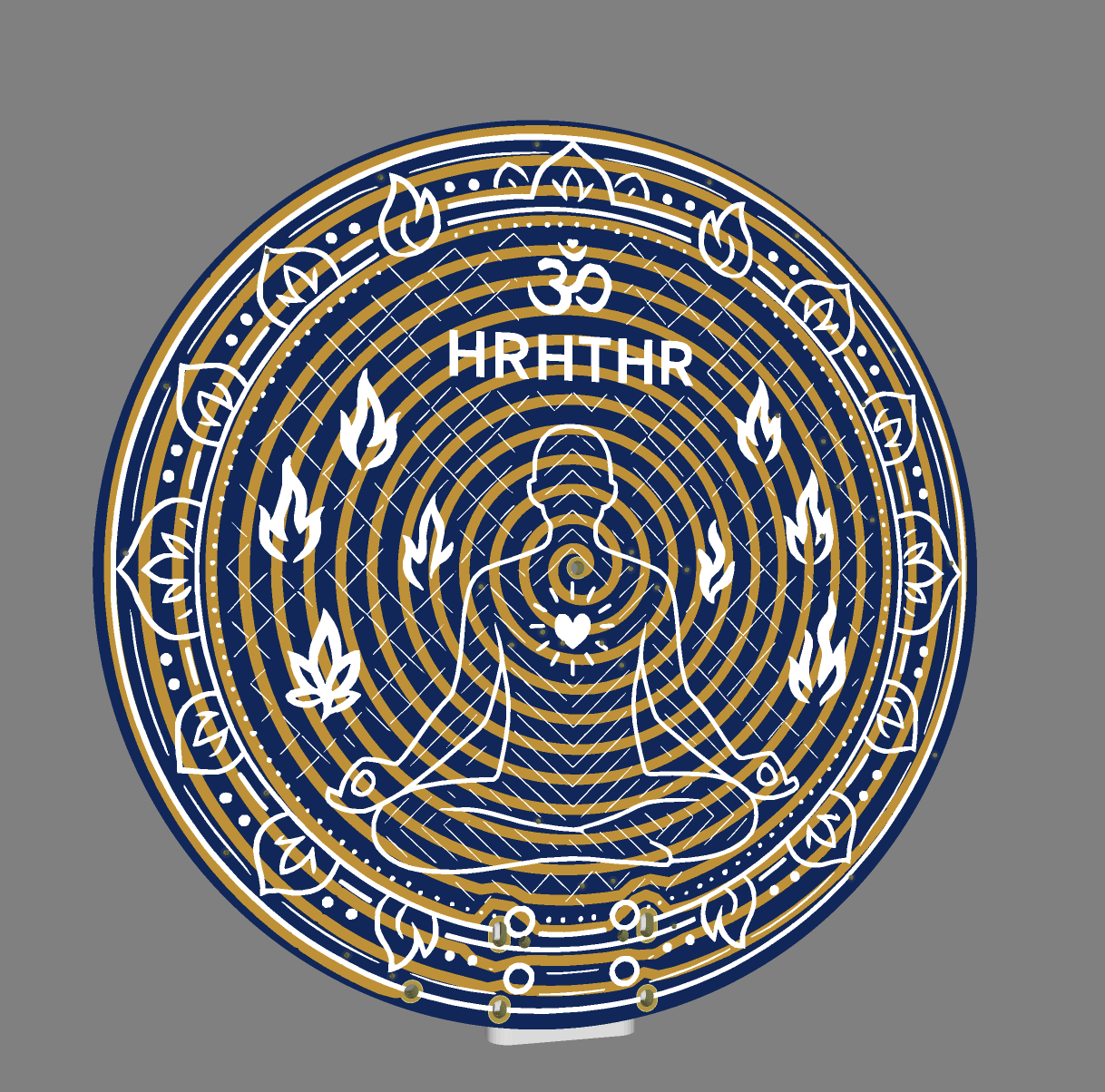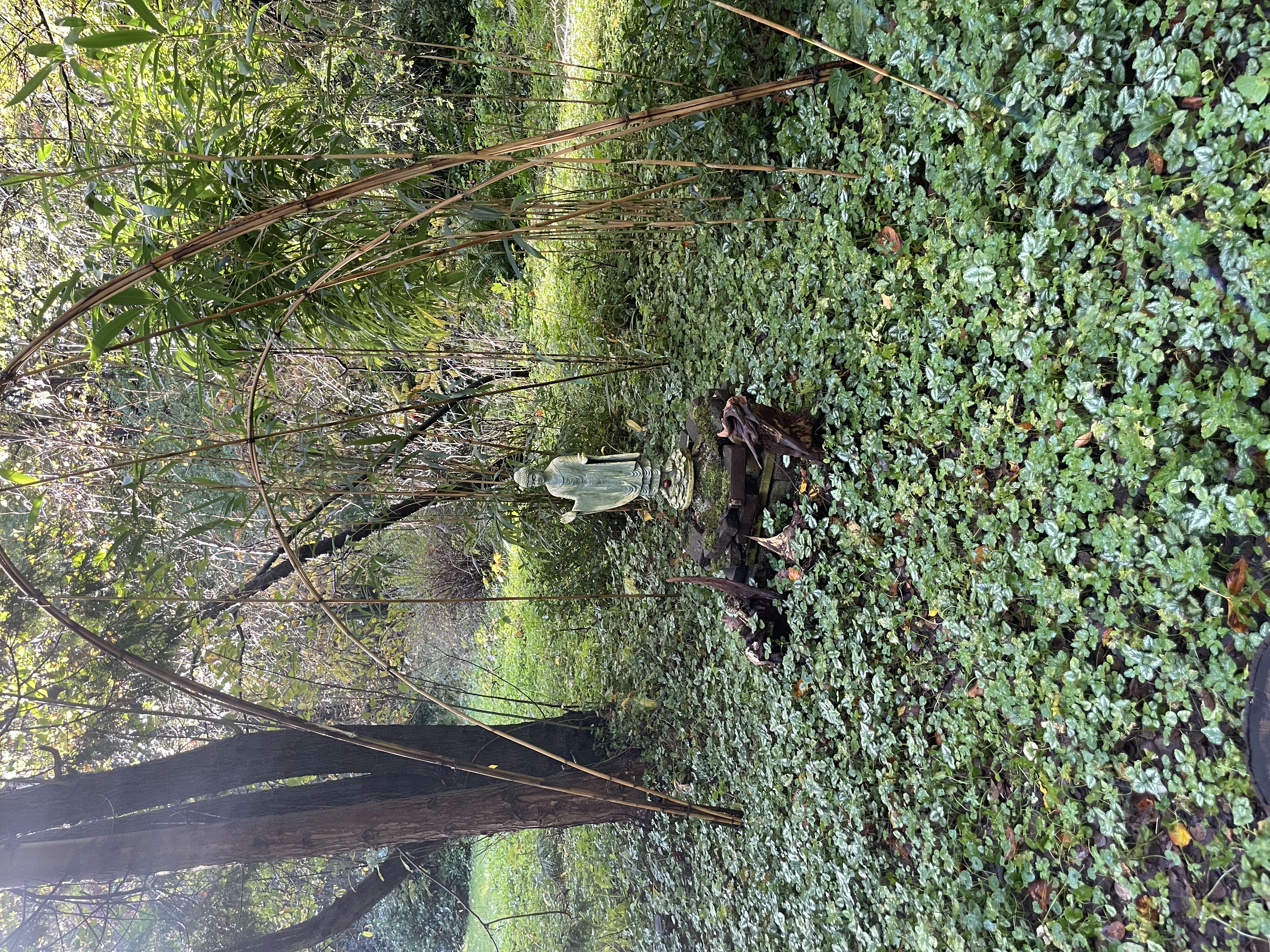Heater Spiral
Heater Spiral
Heat-based body-computer interface pendant

Overview
Heater Spiral is a wearable body-computer interface that delivers gentle, programmable warmth through a spiral heater trace. I designed and assembled the circular PCB from scratch, integrating a MOSFET-controlled heater that can raise the surface temperature to around 50 °C. One application I explored was wearing it as a necklace over the heart with rhythmic warm-up and cooldown phases to anchor attention in the body—similar to metta meditation sessions I tested during retreat. I also prototyped an app that modulates heat based on how near another wearer is, and I plan to redesign the next iteration with a UWB chip for more accurate distance sensing. ...read moreDoyle Spiral Studio
Doyle Spiral Studio
Generative Doyle spiral animations etched into steel and wood

Overview
Doyle Studio is a generative art tool I created to compute Doyle spirals and more patterns that can be exported as SVGs for fabrication with a fiber laser. The software can be used to animate geometric textures on a rotating disk, then translate the animations into physical pieces through engraving angled line patterns with a fibo laser. The current pipeline renders animated patterns and generates high-resolution SVGs for laser engraving. The surfaces reflection sequences can be changed based on the angle of the engrave line pattern similar to a zoetrope.
...read morefindmyfl.at
findmyfl.at
Automated Berlin Apartment Search

Overview
findmyflat is a self-hosted web service that helps people find public housing in Berlin more effectively. It continuously scans all major public Berlin housing providers and notifies users instantly via Telegram whenever a new offer appears. With smart filters, real-time updates, and fair pricing, it makes the stressful apartment hunt much easier. ...read moreanattā – 𑀅𑀦𑀢𑁆𑀢𑀸
anattā – 𑀅𑀦𑀢𑁆𑀢𑀸
LED installation

Overview
Anattā is an experiment in which you are invited to be playful with your identity and that of someone else. Anattā (“non-self”) is a term from Buddhist texts and practices. This experiment for two people invites you to expand the space around the fixed self and to experience that it may not be quite as solid and stable as we often assume. How does it feel to be me? How does someone who is not me feel? How does it feel when both categories dissolve? In 2025 I modified the mirror with two time-of-flight laser sensors so visitors can use hand gestures in front of the surface to control how the two reflections merge, bringing agency and playfulness directly into the blending effect. ...read moreWhat I learned about meditation, love, and trauma on and after a TWIM retreat with Delson Armstrong
I have been practicing tranquil wisdom insight meditation (TWIM), a powerful loving-kindness-based meditation system, for the past six months with a special focus on forgiveness practice. Through that, I already discovered that I and my friends often use shame and guilt to try to control each other. After becoming aware of that I dropped a lot of these patterns. When I started on my meditative path I started with a guided TWIM metta meditation. During that practice after a month I accidentally dropped into the first and second Jhana, thinking I might be having a stroke. So after practicing different models, I returned to TWIM, knowing its power, since firstly loving kindness simply feels good and also many people report that it’s the faster path and that it helps avoid dark night of the soul type of episodes.

Curium
Curium
12U CubeSat on board computer software

Overview
The Curium project was designed around the development of 12U CubeSats, using components primarily sourced from commercial manufacturers. We utilized a launch opportunity from the DLR microlauncher competition 2022. I was part of the on board computer (OBC) team. The written code is publicly accessible on github and gitlab. The satellite was launched succesfully in July 2024 on Ariane 6. ...read moresubscribe via RSS